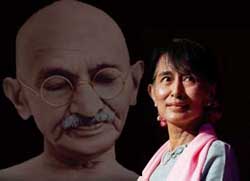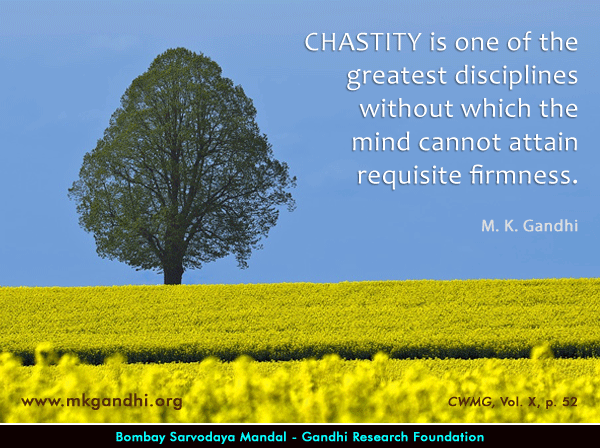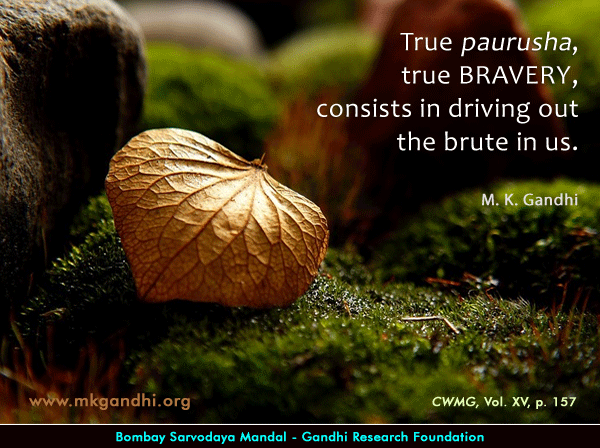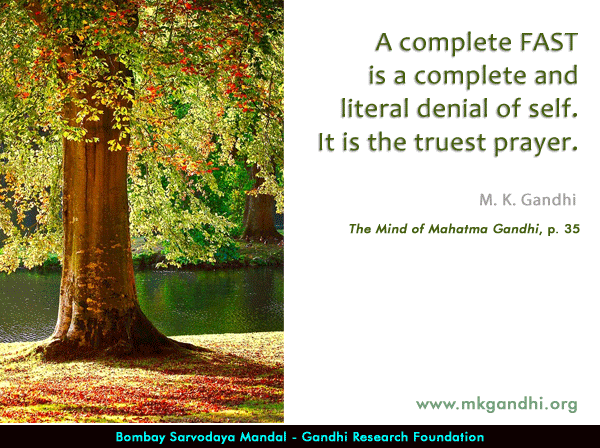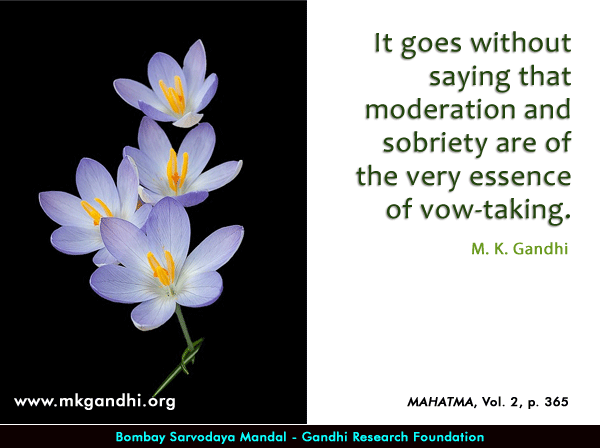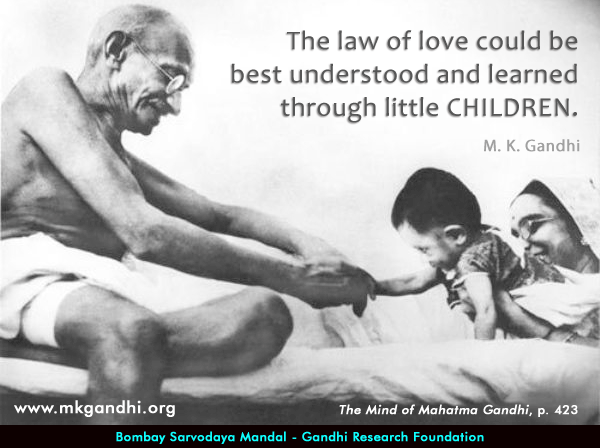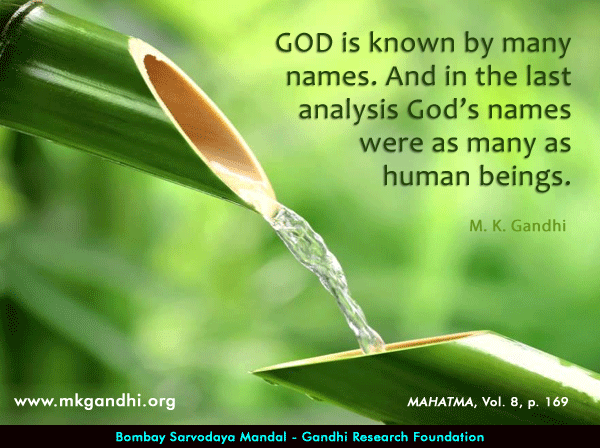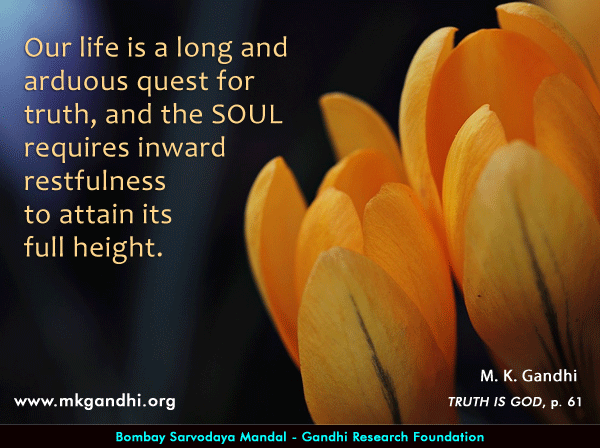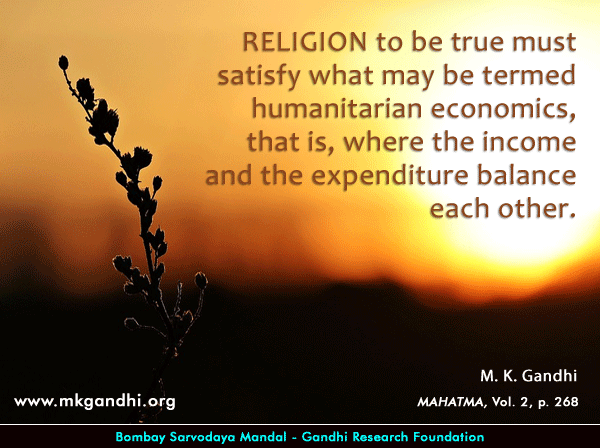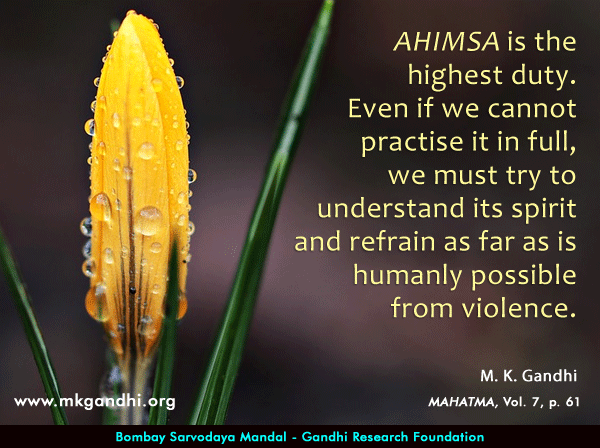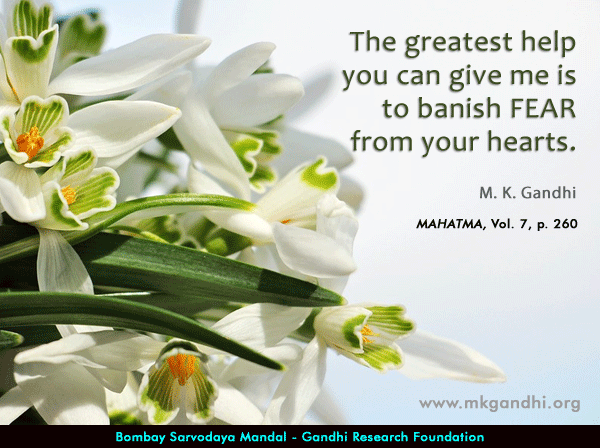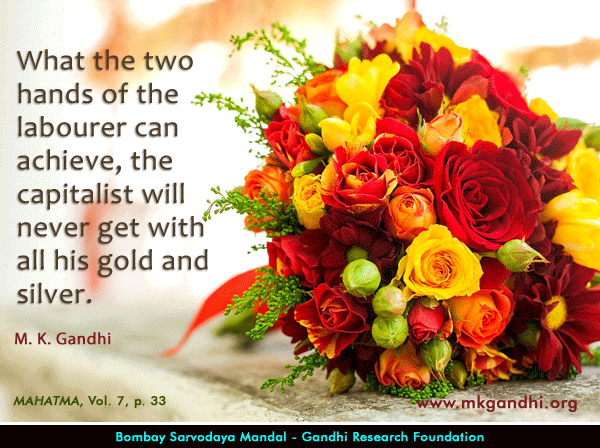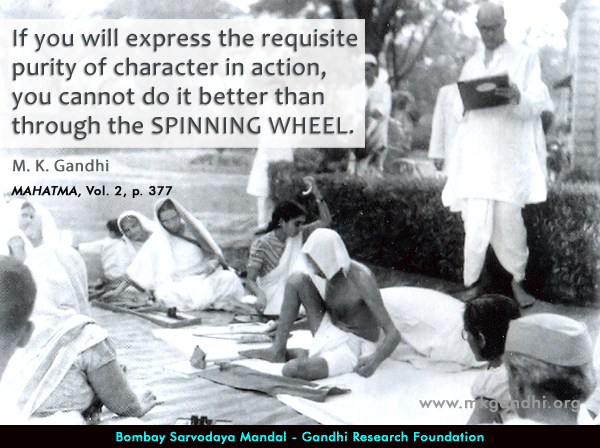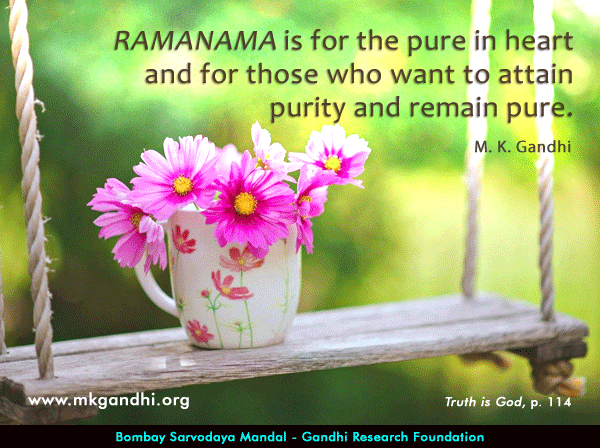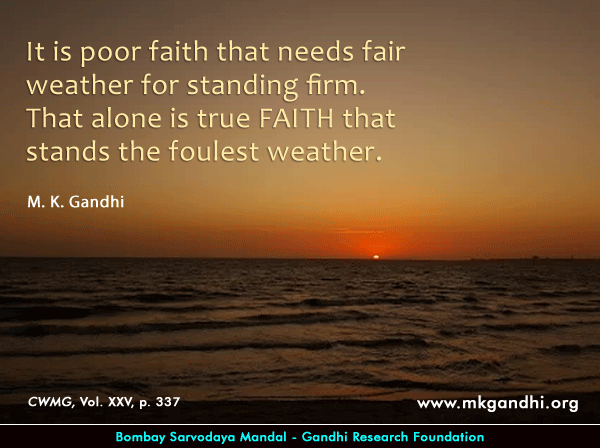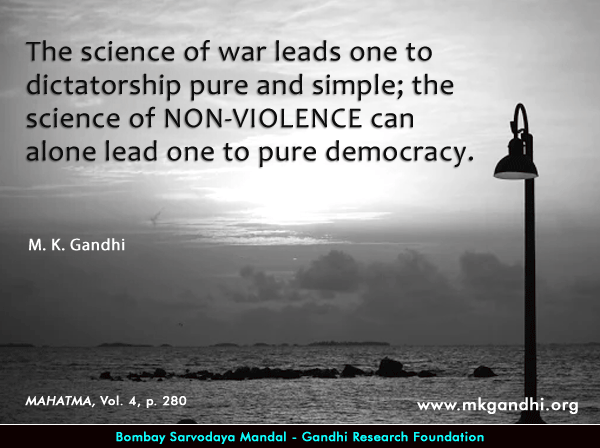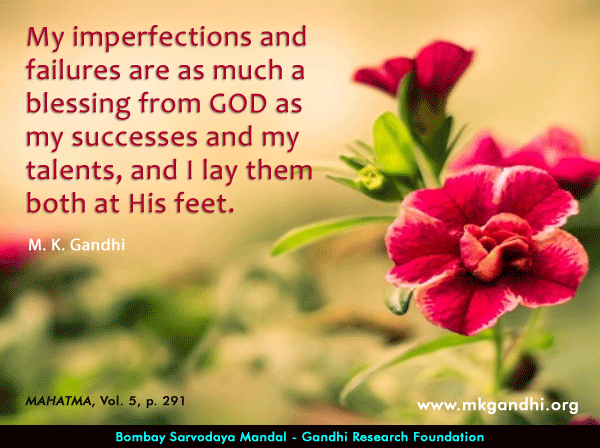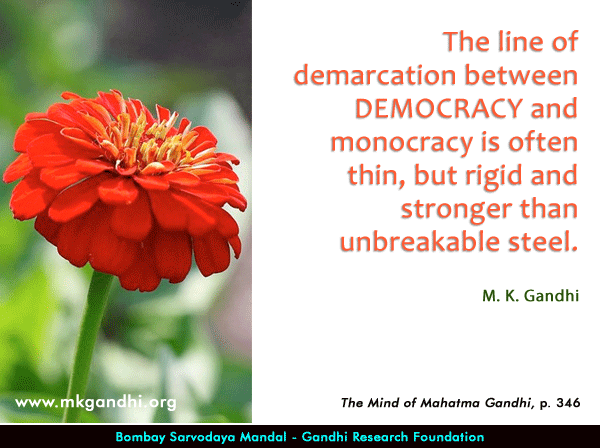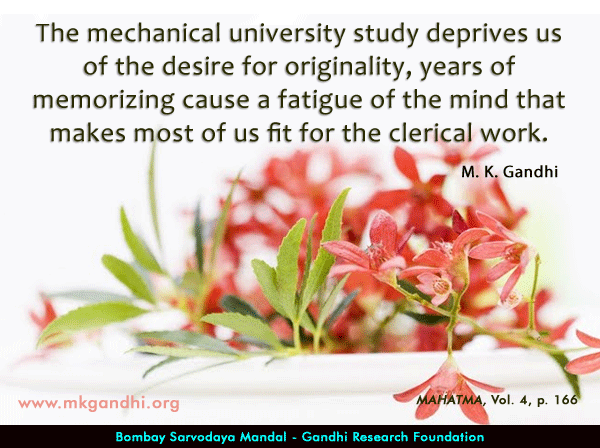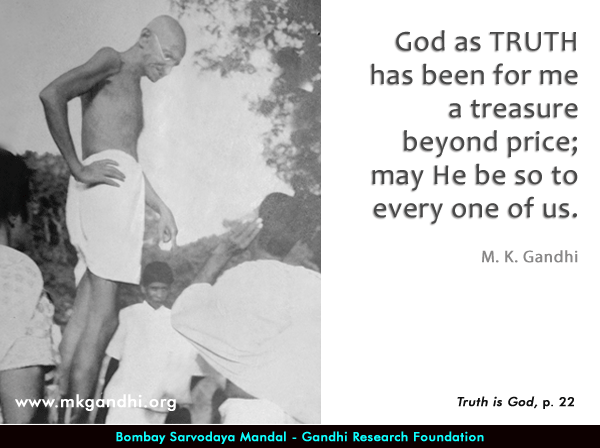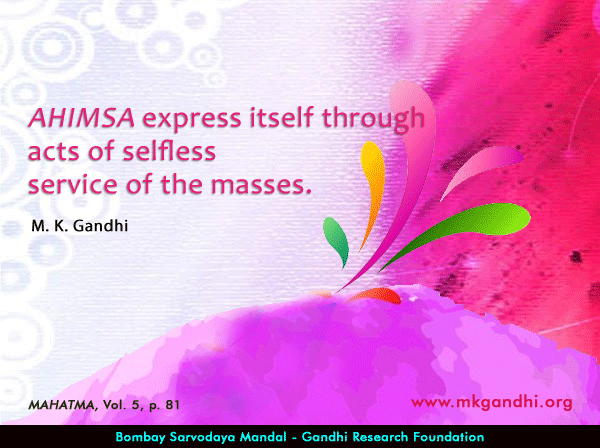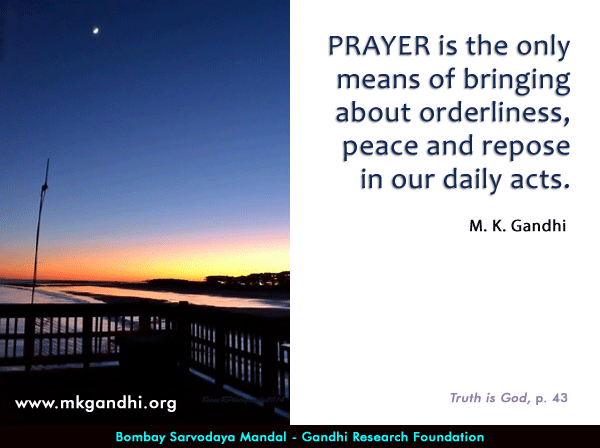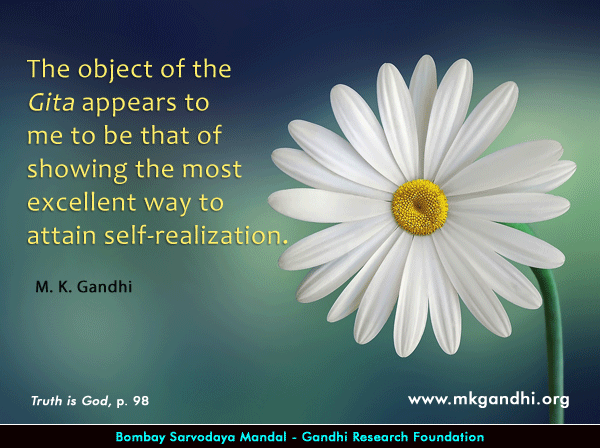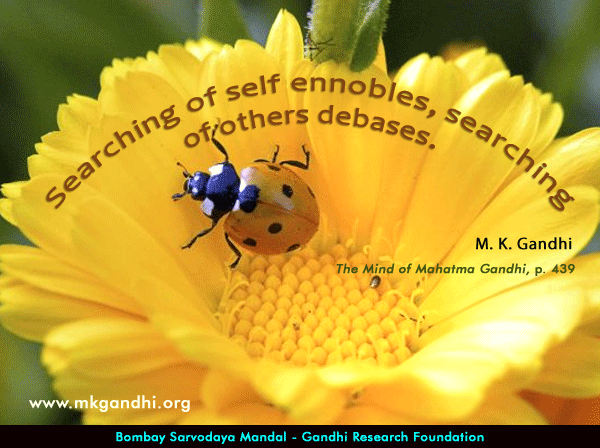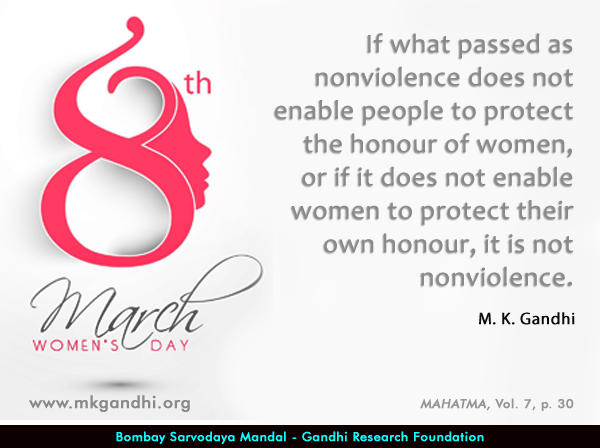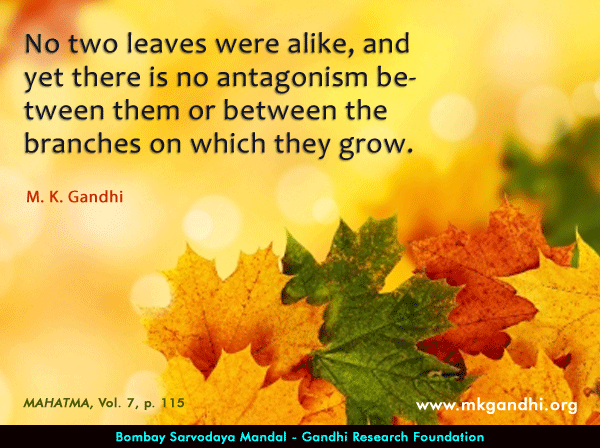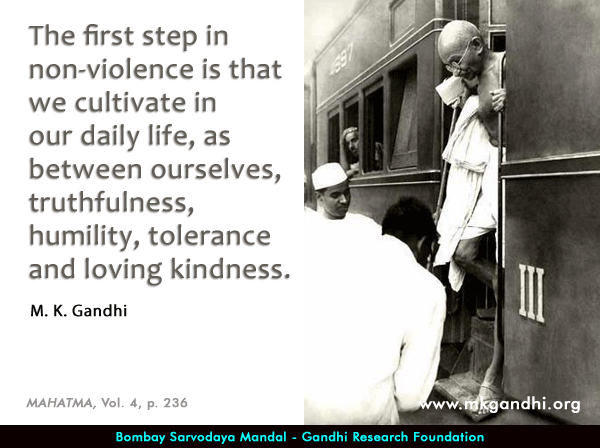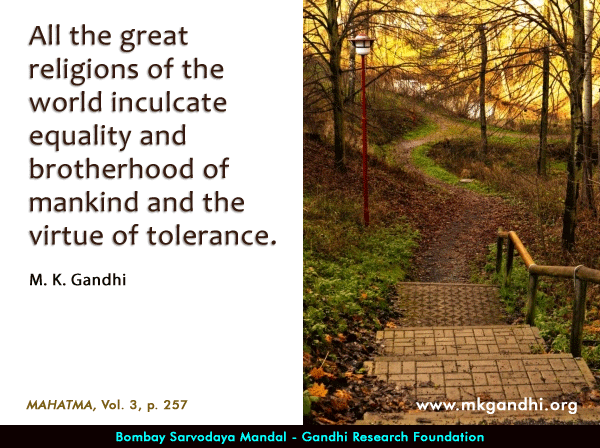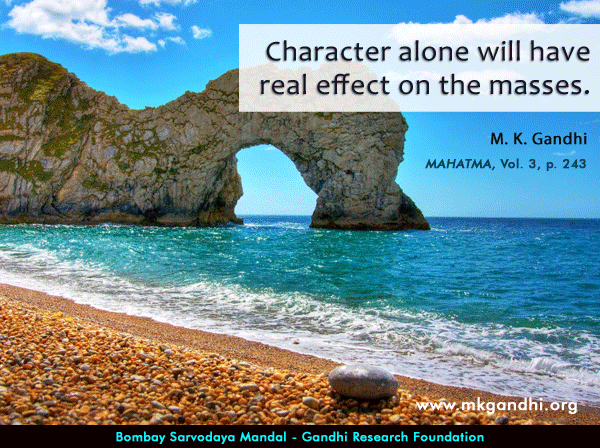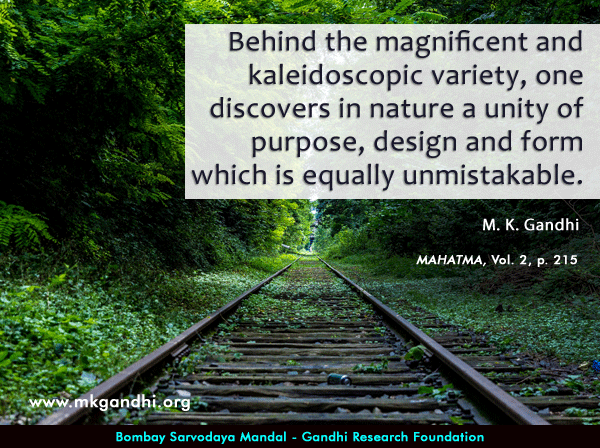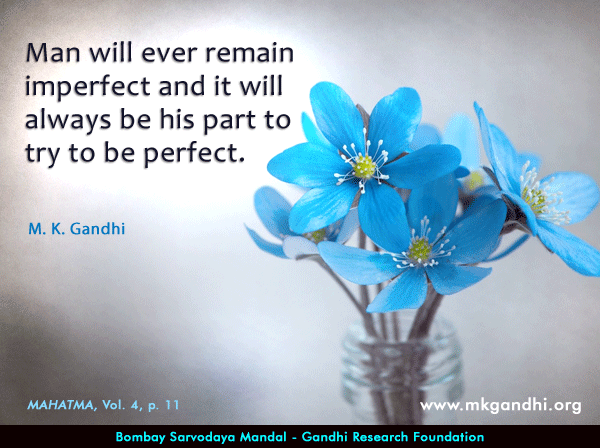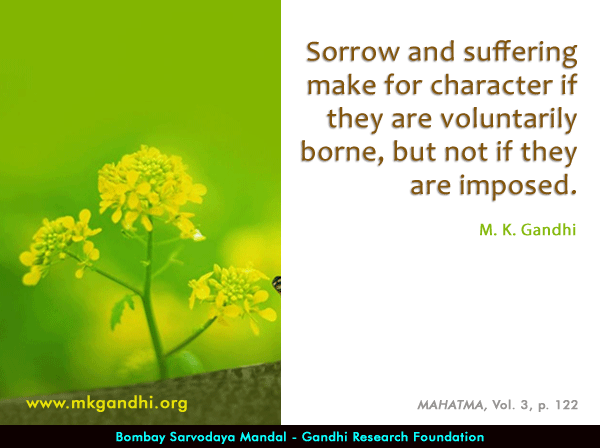Woman’s Status – Not Weaker Sex
To call woman the weaker sex is a
libel; it is man’s injustice to woman. If by strength is meant brute strength,
then, indeed, is woman less brute than man. If by strength is meant moral
power, then woman is immeasurably man’s superior. Has she not greater powers of
endurance, has she not greater courage? Without her man could not be. If non-violence
is the law of our being, the future is with woman….. Who can make a more
effective appeal to the heart than woman? (Young India, 10.04.1930, p. 121)
Woman, I hold, is the
personification of self-sacrifice, but unfortunately today she does not realize
what a tremendous advantage she has over man. As Tolstoy used to say, they are laboring
under the hypnotic influence of man. If they would realize the strength of
non-violence they would not consent to be called the weaker sex. (Young India,
14.01.1932, p. 19)
- M.K. Gandhi
-------------------------------------------
स्त्रियांचे समाजातील स्थान – अबला नाही
नारीला अबला म्हणणे
तिची निंदा करणे आहे. हा पुरुषाने स्त्रीचा केलेला अपमान आहे. शक्तीचा अर्थ पाशवी
शक्ती असा असेल तर खरोखरच पुरुषाच्या तुलनेत स्त्रीमध्ये पाशवीपणा कमी आहे आणि शक्तीचा अर्थ
नैतिक शक्ती असा असेल तर निश्चितपणे पुरुषांच्या तुलनेत स्त्री किती तरी श्रेष्ठ
आहे. स्त्रीमध्ये पुरुषापेक्षा अधिक स्वार्थत्याग, अधिक सहिष्णुता, अधिक साहस नाही
काय? तिच्याशिवाय पुरुषाला कोणतेही अस्तित्व नाही. अहिंसा जर मानवजातीचा नियम असेल
तर भविष्य स्त्रीच्या हाती आहे..... हृदयाला आकर्षित करून घेण्याचा गुण
स्त्रियांपेक्षा जास्त कोणात असू शकतो? (यंग इंडिया, १०.०४.१९३०, पृ. १२१)
मला वाटते की,
स्त्री ही स्वार्थत्यागाची मूर्ती आहे, परंतु आपण पुरुषापेक्षा किती श्रेष्ठ आहोत ते
तिला दुर्दैवाने कळत नाही. टॉलस्टॉय म्हणत त्याप्रमाणे स्त्रिया पुरुषाच्या संमोहक
प्रभावाखाली अजूनही वावरत आहेत. त्यांना जर अहिंसेच्या शक्तीचा परिचय झाला तर त्या
स्वतःला अबला म्हणवून घ्यायला कधीही तयार होणार नाहीत. (यंग इंडिया, १४.०१.१९३२,
पृ. १९)
- मो.क. गांधी
-------------------------------------------
समाज में स्त्रियों की स्थिति – अबला नहीं
नारी को अबला कहना उसकी निंदा करना है; यह
पुरुष का नारी के प्रति अन्याय है | यदि शक्ति का अर्थ पाशविक शक्ति है तो सचमुच
पुरुष की तुलना में स्त्री में पाशविकता कम है | और यदि शक्ति का अर्थ नैतिक शक्ति
है तो स्त्री निश्चित रूप से पुरुष की अपेक्षा कहीं अधिक श्रेष्ठ है | क्या उसमें
पुरुष की अपेक्षा अधिक अंतःप्रज्ञा, अधिक आत्मत्याग, अधिक सहिष्णुता और अधिक साहस
नहीं है? उसके बिना पुरुष का कोई अस्तित्व नहीं है | यदि अहिंसा मानव जाति का नियम
है तो भविष्य नारी जाति के हाथ में है..... ह्रदय को आकर्षित करने का गुण स्त्री
से ज्यादा और किसमें हो सकता है? (यंग इंडिया, १०.०४.१९३०,
पृ. १२१)
मेरा मानना है की स्त्री आत्मत्याग की
मूर्ति है, लेकिन दुर्भाग्य से आज वह यह समझ नहीं पा रही है की वह पुरुष से कितनी
श्रेष्ठ है | जैसा कि टाल्सस्टॉय ने कहा है, वे पुरुष के सम्मोहक प्रभाव से
आक्रांत है | यदि वे अहिंसा की शक्ति पहचान लें तो वे अपने को अबला कहे जाने के
लिए हरगिज राजी नहीं होंगी | (यंग इंडिया, १४.०१.१९३२,
पृ. १९)
- मो.क. गांधी
